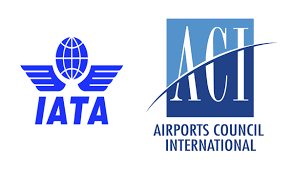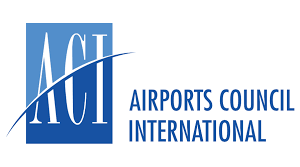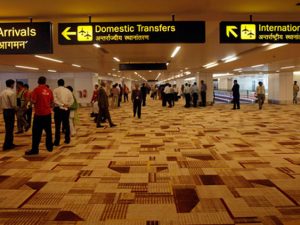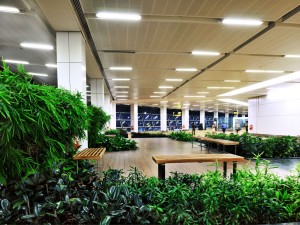Airports Council International (ACI)-Asia Pacific has warned that the aviation industry’s recovery is threatened by rising airfares in the Middle East and Asia Pacific regions, despite stable airport charges. ACI-Asia Pacific’s latest industry outlook reveals that, despite airports’ substantial efforts to freeze or lower airport charges in 2022, airfares rose by an average of 53% compared to 2019.
Read More »WTTC expands ‘Safe Travels’ protocols to M!CE sector
WTTC has unveiled the second phase of measures to rebuild global consumer confidence to encourage the return of travelling. The latest protocols are designed to enable sectors such as tour operators and convention centres, meetings and events to thrive once again. The extended measures follow the ‘Safe Travels’ guidelines that were launched by WTTC on May 12. Detailed discussions took place with key stakeholders and organisations to ensure maximum buy-in, alignment and practical implementation, to set clear expectations of what travellers may experience in the ‘new normal’. Those relating to airports and airlines have been devised following close consultation with WTTC Members IATA and Airports Council International (ACI), to rebuild trust and provide reassurance that airports and airlines will offer safe environments in which to fly once travel restrictions are relaxed.
Read More »ACI and IATA jointly issue paper on restarting aviation safely
Airports Council International (ACI) World and the International Air Transport Association (IATA) have jointly issued a paper laying out a pathway for restarting the aviation industry – Safely Restarting Aviation – ACI and IATA Joint Approach. They have called on governments to ensure new measures introduced for airports and airlines in the wake of COVID-19 are consistent across the world. Any restrictions put in place should be supported by scientific evidence, they added. ACI and IATA are both central members the COVID-19 Aviation Recovery Task Force (CART) being led by the Council of the International Civil Aviation Organization (ICAO). Angela Gittens, Director General, ACI World, said during a webinar conducted by CAPA India on May 29, 2020, that, “Airports and airlines have come together with ICAO and the wider aviation industry to address the biggest challenge ever faced by commercial aviation in restarting a global industry while continuing to halt the spread of COVID-19. There is currently no single measure that could mitigate all the risks of restarting air travel but we believe a globally-consistent, outcome-based approach represents the most effective way of balancing risk mitigation with the need to unlock economies and to enable travel.” The joint approach proposes a layered approach of measures across the entire passenger journey to minimise the risk of transmission of COVID-19 at airports and onboard aircraft, and to prevent aviation becoming a meaningful source of international re-infection. Such measures should be globally consistent and subject to continued review, improvement, and removal when no longer required, to ensure an even recovery.
Read More »India to become 3rd largest air passenger market by 2040: Airports Council International
India is set to become the third largest aviation passenger market by 2040 with a total of 1.3 billion passengers, according to 2019 World Traffic Forecasts, released by the Airport Council International (ACI) World. China was placed at the first position with 3.5 billion passengers, followed by United States at the second spot with 2.9 billion passengers in 2040, in the report. Together, these three countries would handle almost 40 per cent of the global passenger traffic. India is also expected to be the third leading market for aircraft movements by 2040, after the US (23 per cent), China (16) with four per cent of global aircraft movements.
Read More »Delhi’s IGI Airport breaks into world’s top 20 busiest
New Delhi’s Indira Gandhi International Airport has jumped six notches to break into the league of the top 20 busiest airports in the world for 2017 in terms of traffic volumes. The GMR-group-run New Delhi airport jumped from 22nd rank in 2016 to 16th rank, solidifying its status as one of the fastest growing airports in the world for passenger traffic, as per the Airports Council International (ACI). The ranking is based on the preliminary passenger traffic results for the most-travelled airports in 2017, released by ACI. Hartsfield-Jackson Atlanta International Airport (ATL) was ranked the busiest airport in the world with 103 million passengers (both departing and arriving) despite a 0.3 per cent decline in traffic volumes over 2016. Delhi, the country’s busiest airport for passenger traffic, grew by 14.1 per cent year-over-year at 63.45 million, pushing it up from 22nd to the 16th busiest airport in the world,” the ACI said in the release. Even with this rapid growth in throughput, Delhi was also ranked first in Airport Service Quality for airports above 40 million passengers per annum along with the Mumbai airport, it said. Besides, Kolkata, Hyderabad, Bengaluru and Chennai were also ranked among the fastest growing airports in the world with an year-over-year growth of 26.9 per cent, 19.6 per cent, 12.9 per cent and 10.5 per cent, respectively during 2017, the ACI said. Source: PTI
Read More »Delhi Airport becomes 1st in APAC to achieve carbon neutral status
GMR Group’s Delhi Airport, managed by Delhi International Airport (P) Limited (DIAL), has become the first airport in Asia-Pacific to achieve Carbon Neutral status. The announcement has been made by Airports Council International (ACI) during the Airport Carbon Accreditation certificate presentation ceremony in Montreal, Canada, where I Prabhakara Rao, CEO, DIAL received the prestigious certificate. The same body awarded Delhi Airport the world’s number one position (in 25-40 million passengers per annum category) twice in a row under the Airport Service Quality (ASQ) programme. The globally reputed Airport Carbon Accreditation has upgraded Delhi Airport to “Level 3+, Neutrality”, which is the highest level of achievement available to airports across the world. Carbon neutrality occurs when the net carbon emissions over an entire year is zero. This means the airport absorbs or offsets the same amount of emission that was generated. This achievement is accredited by ACI under Airport Carbon Accreditation that monitors the efforts of airports to manage and reduce their carbon emissions.
Read More » Tourism Breaking News
Tourism Breaking News





